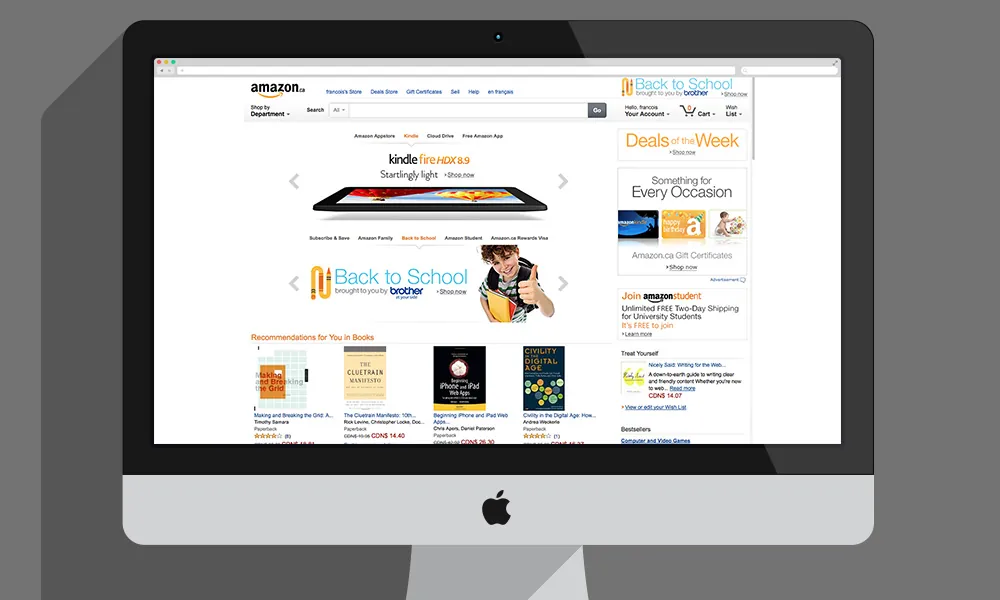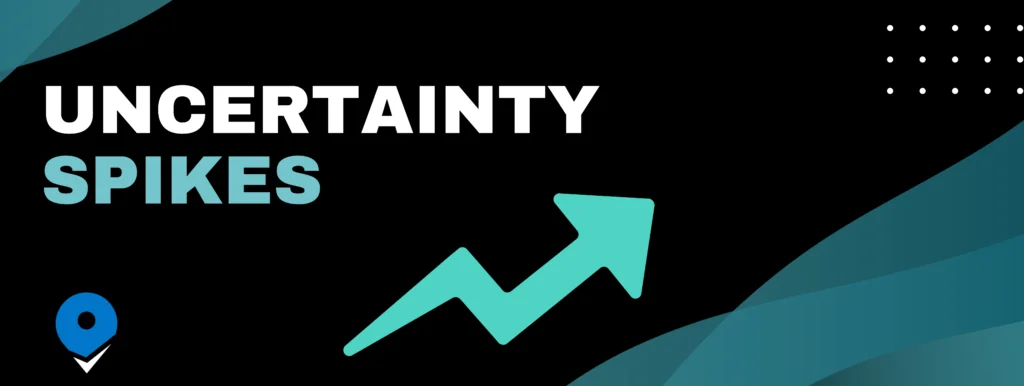Think of every guest who visits your direct bookings website as a problem solver. They’ve made contact with your brand because they have a specific need – and they’re ready to spend money to solve it. You have the guest’s attention; but the question is, how do you ensure you don’t lose it?
Call it ignorance or plain-spoken fear – the majority of short-term rental hosts don’t like to admit that the loyalty of their website visitors is fickle. From the moment a guest begins their booking journey, their brain innately goes into defense-mode; and they pick up red flags like bees pick honey.
These red flags cause uncertainty spikes. And these uncertainty spikes become the very reason why the guest fails to complete their booking.
How trust signals dispel uncertainty
Cognitive science tells us that when a person has already decided to spend money on something, any sign to make them feel better about their decision will be a huge motivator. This effect is known as confirmation bias – and it means that people prefer situations where there is complete elimination of all risks.
Essentially, your direct bookings’ website needs to amplify the effect of confirmation bias as much as possible (so your potential guests actually convert to paying guests). This is done through trust signals. For example, an I-PRAC verification logo on your homepage, verified reviews, trust-focused content, legitimate business details, an I-PRAC membership ID, and so on.
These signals reaffirm to website visitors that they’re making the right choice; and as a result, they feel safe in following-through with a payment.
Think about it: Why do we casually make large purchases on websites like Amazon, and think twice before spending £10 on Facebook Marketplace? While it’s true that Amazon has built a trusted reputation over the last 20 years; but at the helm of its success is a well functioning website that is packed with trust signals.
✅ Verified reviews
✅ Satisfaction guarantees
✅ Smooth and secure purchase flow
✅ Intelligent UX and UI
The brain’s (silent) response to a poorly designed website
Amazon’s website isn’t going to win any awards for being the most attractive. But it’s clean and it’s functional. When a consumer visits Amazon’s website, they’re constantly reassured that they’re in the right place. This reassurance is something every consumer needs – remember, just because they trusted a website enough to initially visit it, doesn’t mean that they’ll trust it enough to stay.

Let’s put this into the context of the average direct bookings’ website.
More often than not, a traveler will visit the website with high hopes and moderate intentions to spend money. However, there’s likely to be an immediate dip in their certainty as soon as they see the homepage, because of a weak above-the-fold message and no signal to prove that the short-term rental operator is, in fact, legitimate.
In most cases, the guest will continue browsing the website – and give the host the benefit of the doubt. However, by this point, their level of certainty has already been bruised.
Now, if the property page of the website is also lacking in trust signals (poor quality photos, no dates on photos, vague descriptions, zero quality control guarantee), then the visitor is already at a high risk of abandoning the website completely. There will now be a huge spike of uncertainty, as the website visitor is physically looking at the product they’re being asked to spend money on, and their brain will immediately go into defensive.
Even if the website visitor does continue their booking journey (next, by viewing the about page), what we must remember is that they’re no longer in the optimal state of mind to make a payment. Unfortunately, a vast number of direct booking websites fail to include a trust page too – so, the visitor’s uncertainty levels remain high.
However, one of the most eye-opening facts that we’ve uncovered (thanks to a study by Digitall), is that even when a website visitor reaches the payment stage of any booking or purchase, 2 out of 3 of them will abandon the process if the website hasn’t done enough to remove all their uncertainties, and if the payment process itself is weak.
So, if we imagine the ‘average’ direct bookings’ website – and by this we mean a website that is void of trust signals and I-PRAC’s proven strategies – then any guest visiting it is likely to experience intense uncertainty spikes.
Causing them to feel uncomfortable; and in turn, choosing to book with a more seemingly reliable competitor.
Eliminating uncertainty spikes and providing guests with a complete, and more enjoyable booking experience
Our in-house research shows us that I-PRAC accredited members who design their websites with all our guidance about trust signals in mind, increase their conversion rates by 67%.
There are also members who fail to leverage their verification on their website in the correct way; and they fail to fill their calendars (even though they have the accreditation).
But the reason why the former group of members enjoy this exquisite 67% increase is because they’re giving their website visitors that constant hit of oxytocin they need (the love and trust hormone). When a traveler lands on their website, they immediately see a trust signal at the top of the homepage, while their brain is responding with ‘Yes, tell me more…’.
And this process continues, throughout the website browsing experience and the booking journey.
“Yes, tell me more – Yes, tell me more”.

We strongly recommend that short-term rental operators like you do your homework and seek an honest snapshot of how your website is performing. Ask your website developer to give you your bounce rate (especially for the homepage, about page and booking page of your website) and you’ll immediately see if your guests have been suffering with uncertainty spikes.
Remember, it’s not about the number of direct bookings you’re already getting – it’s the number you’re more than likely missing out on, as a result of a poorly constructed website that is starved of strategic trust signals.
For more advice on optimizing your direct bookings’ website email [email protected]. I-PRAC’s official website partner is Boostly – we are not website designers ourselves; but we can consult on the gaps across your website and help you work with Boostly if you’re already I-PRAC accredited (and help you become accredited if you’re not).



